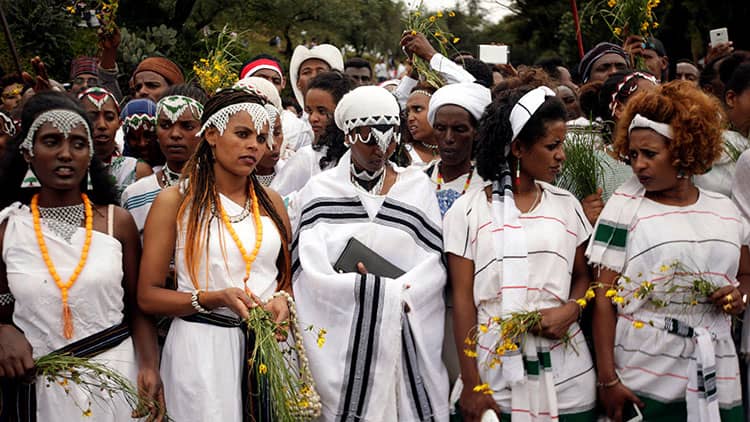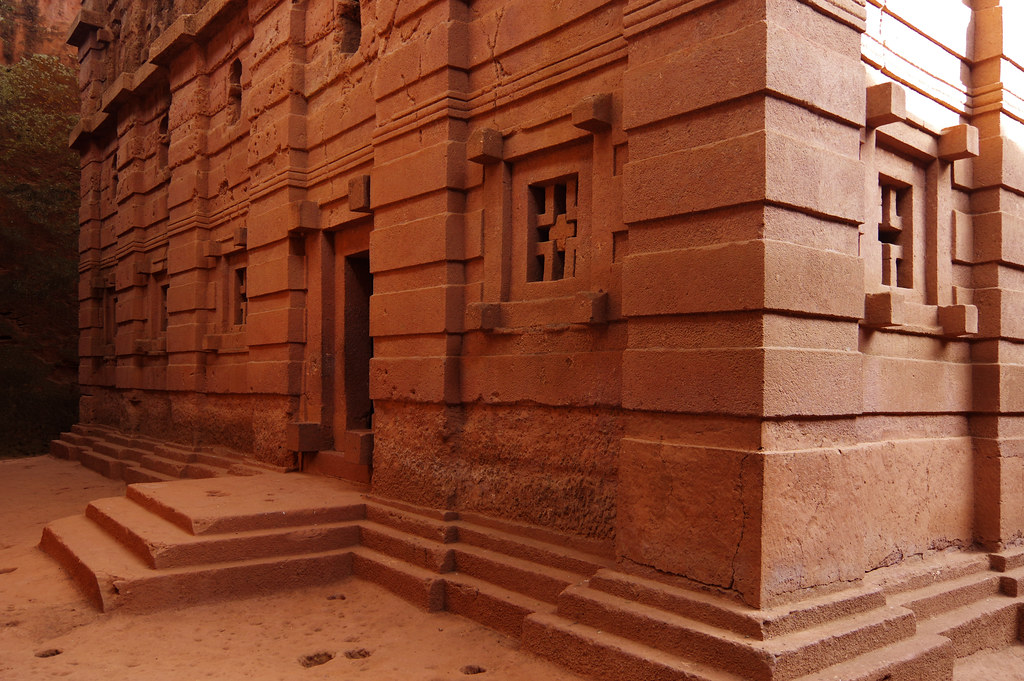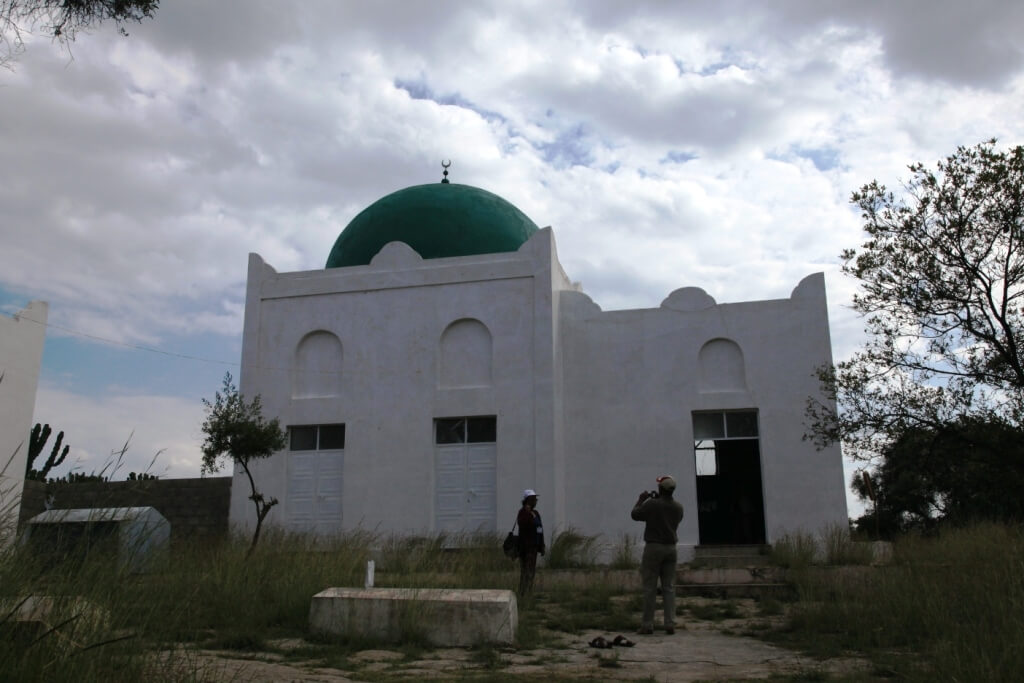Ethiopia Battle of Adwa: History, Key Figures, and Legacy
Learn about the Battle of Adwa: its background, key figures, tactics, and the significance of Ethiopia’s victory in the context of colonialism.
The Battle of Adwa, also known as the Adwa War or Adwa 1896, was a historic event that took place in the town of Adwa, Ethiopia. On Adwa Victory Day, the Ethiopian forces led by Emperor Menelik II successfully defeated the invading Italian army, marking a significant turning point in African history. This article explores the history, key figures, and lasting legacy of the Battle of Adwa, shedding light on a pivotal moment in the struggle against colonial oppression.
Background Ethiopia and Colonialism
The Battle of Adwa, fought on March 1, 1896, stands as a monumental event in African history. During the late 19th century, the “Scramble for Africa” was in full swing, with European powers vying to colonize vast territories across the continent. Ethiopia, led by Emperor Menelik II, was determined to resist these colonial ambitions and maintain its sovereignty.
Italy sought to expand its colonial empire by establishing a protectorate over Ethiopia. The Treaty of Wuchale, signed in 1889, was meant to outline the terms of this relationship. However, the treaty’s Italian and Amharic versions contained discrepancies that led to a major conflict. The Italian version implied that Ethiopia had agreed to be an Italian protectorate, while the Amharic version did not. This misunderstanding fueled tensions and set the stage for the Battle of Adwa.
Key Figures : who fought in the battle of adwa
Menelik II
Emperor Menelik II was the pivotal figure in Ethiopia’s resistance against Italian colonial ambitions. Born in 1844, Menelik ascended to the throne in 1889 following the death of Emperor Yohannes IV. Menelik’s leadership was characterized by his efforts to modernize Ethiopia and strengthen its military. His strategic acumen and diplomatic skills were crucial in rallying Ethiopian forces to defend their land.
Taytu Betul
Empress Taytu Betul, the wife of Menelik II, played a significant and often underappreciated role in the Battle of Adwa. Known for her political savvy and military insight, Taytu was instrumental in planning and executing strategies that contributed to Ethiopia’s victory. Her leadership extended beyond the battlefield, as she was also a key advisor to the emperor.
Ras Makonnen
Ras Makonnen, the father of future Emperor Haile Selassie, was another key figure in the Battle of Adwa. As one of Menelik’s trusted generals, Ras Makonnen led troops with great skill and valor. His contributions were vital in securing the Ethiopian victory and ensuring the nation’s independence.
Ras Mengesha Yohannes
Ras Mengesha Yohannes, son of Emperor Yohannes IV, provided crucial support with his forces. His involvement exemplified the unity among Ethiopian leaders and their collective effort to repel the Italian invasion.
Oreste Baratieri
On the Italian side, General Oreste Baratieri was tasked with leading the Italian forces. Baratieri underestimated the strength and resolve of the Ethiopian forces, leading to a decisive defeat for Italy. His miscalculations and lack of preparedness were significant factors in the outcome of the battle.
These key figures, each with their unique contributions and leadership qualities, played essential roles in the Battle of Adwa. Their collective efforts ensured Ethiopia’s historic victory against a European colonial power, a feat that resonated across Africa and the world.
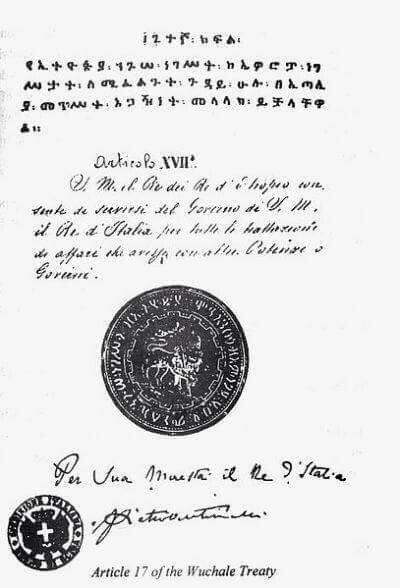
why did the battle of adwa happen
The Treaty of Wuchale
The Treaty of Wuchale, signed in 1889, was a pivotal agreement between Italy and Ethiopia that laid the groundwork for the conflict at Adwa. The treaty was meant to establish a friendly relationship between the two nations, but discrepancies between its Italian and Amharic versions led to significant misunderstandings. The Italian version implied that Ethiopia had agreed to become an Italian protectorate, while the Amharic version did not. This critical difference became a source of tension, as Emperor Menelik II of Ethiopia rejected the notion of a protectorate and asserted Ethiopia’s independence. The controversy surrounding the Treaty of Wuchale set the stage for the Battle of Adwa.
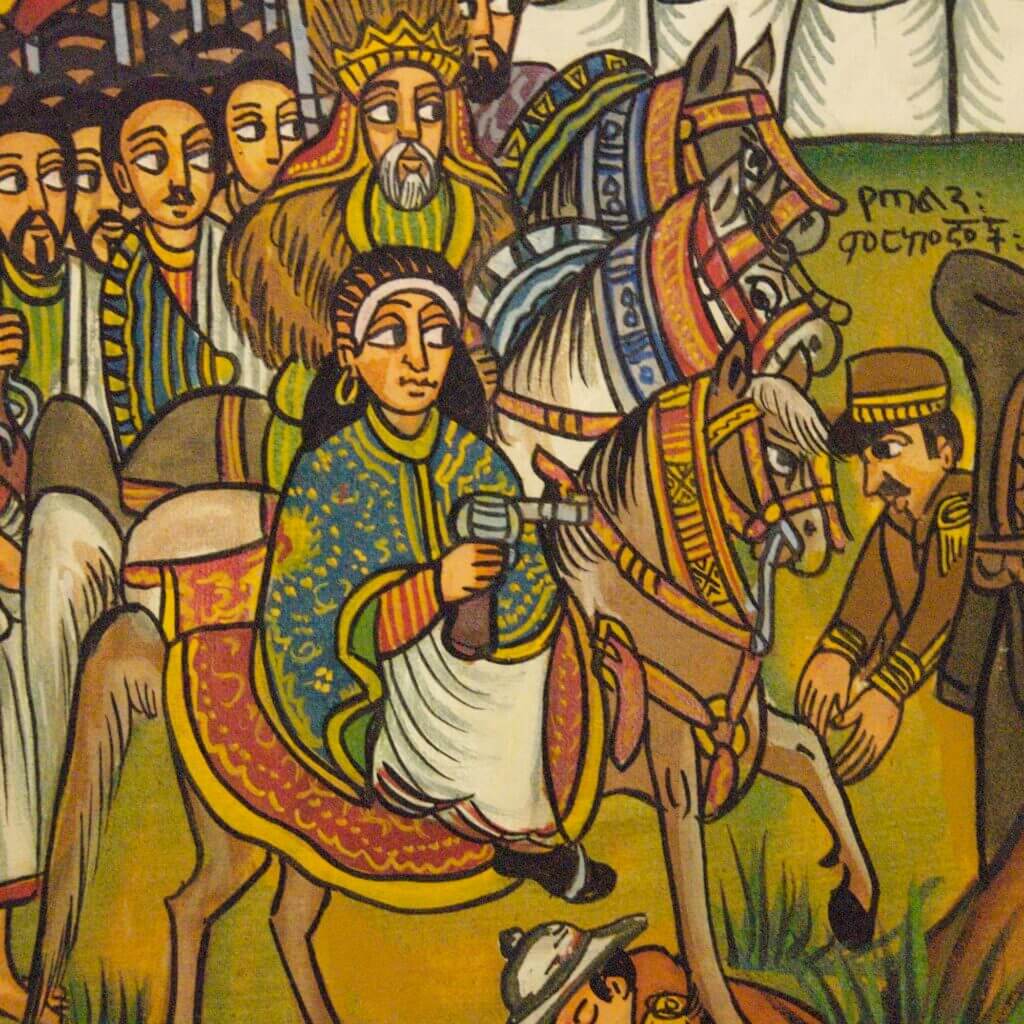
The Battle of Adwa
On March 1, 1896, the Battle of Adwa took place near the town of Adwa in north-central Ethiopia. This battle was a decisive confrontation between the Ethiopian forces, led by Emperor Menelik II, and the invading Italian force under General Oreste Baratieri. It stands as a significant event in African history, marking a rare victory of an African nation over a European power during the age of colonialism.
Ethiopian Tactics
The Ethiopian forces, consisting of a massive army from various regions of the Ethiopian Empire, adopted several effective tactics that led to their victory. Under the leadership of Emperor Menelik II and key figures like Empress Taytu and Ras Makonnen, the Ethiopians utilized their intimate knowledge of the terrain to their advantage. They strategically positioned their troops on high ground, ensuring they had a superior vantage point over the Italian forces.
Additionally, Menelik’s diplomatic efforts to secure modern weapons and support from European nations like France and Russia played a crucial role. The Ethiopian army was well-armed and coordinated, with a strong sense of unity and purpose driven by the desire to maintain their sovereignty.
Italian Tactics
The Italian tactics, on the other hand, were marked by miscalculations and underestimations of the Ethiopian forces. General Oreste Baratieri, who commanded the Italian troops, faced several challenges. The Italian force was overconfident, expecting an easy victory against what they perceived as a less organized African army.
One of the critical errors was the division of the Italian army into smaller units, which weakened their overall strength. Additionally, the lack of accurate intelligence about the size and capability of the Ethiopian forces led to poor strategic decisions. The Italians were unfamiliar with the terrain and underestimated the Ethiopians’ capability to mobilize a large and well-coordinated force.
In the end, the Ethiopian forces overwhelmed the Italian troops, resulting in a decisive victory that secured Ethiopia’s independence and marked a significant setback for European colonial ambitions in Africa.
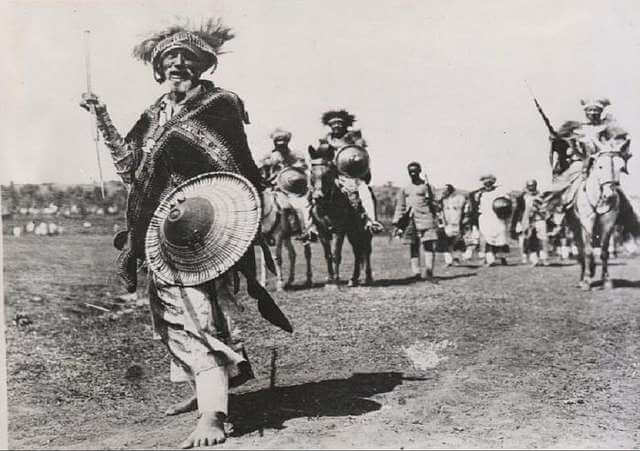
Outcome of the Battle Ethiopian Victory
The Battle of Adwa culminated in a decisive Ethiopian victory on March 1, 1896. Under the leadership of Emperor Menelik II, Empress Taytu, and other key figures, the Ethiopian forces successfully routed the invading Italian force. This victory was not just a military triumph; it was a powerful assertion of Ethiopia’s sovereignty and refusal to be subjugated by a European power.
The aftermath of the battle saw the capture of numerous Italian prisoners and the forced retreat of the remaining Italian troops. The victory at Adwa ensured that Ethiopia remained one of the few African nations to successfully defend its independence during the age of European colonialism. This triumph was formalized with the Treaty of Addis Ababa, signed later in the year 1896, in which Italy recognized Ethiopia’s sovereignty and renounced its claims to the country.
Global Impact
Significance for Africa
The Battle of Adwa had far-reaching implications beyond Ethiopia’s borders. It became a symbol of resistance and hope for other African nations under colonial rule or facing the threat of European conquest. Ethiopia’s victory challenged the prevailing narrative of European superiority and demonstrated that a united and determined African nation could successfully defend its sovereignty.
The Adwa victory resonated across the African continent and contributed to the burgeoning Pan-African movement. It inspired other African leaders and freedom fighters to resist colonial rule and seek independence. Furthermore, the battle bolstered Ethiopia’s position as a symbol of African pride and resilience.
Ethiopia’s victory at Adwa also had a significant impact on the global stage. It garnered international attention and admiration, particularly among nations and peoples striving for self-determination. The battle’s outcome challenged European colonial ambitions and showcased the potential for successful resistance against imperial powers.
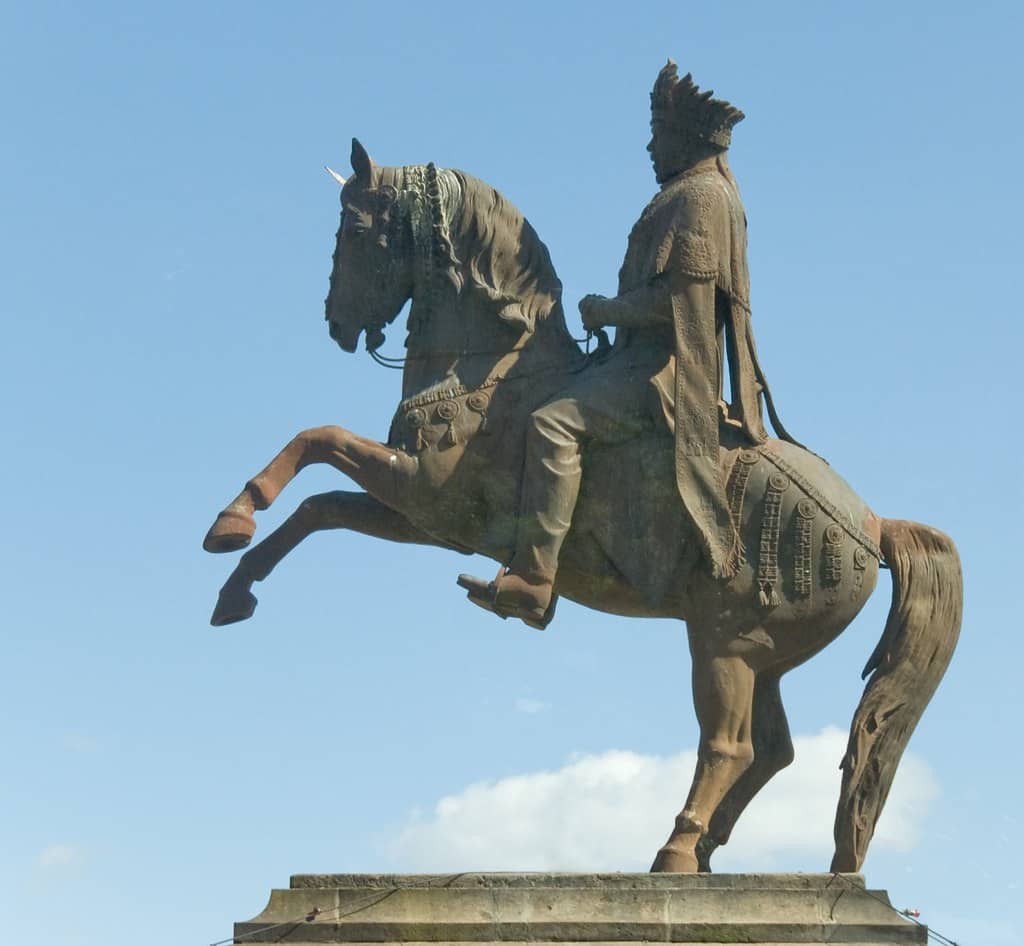
Legacy of the Battle of Adwa
The Battle of Adwa has left an enduring legacy that continues to resonate in Ethiopia and across Africa. This decisive Ethiopian victory is celebrated not just as a military triumph but as a symbol of resilience, unity, and the fight for sovereignty.
Modern Interpretations
In modern times, the Battle of Adwa is remembered as a turning point in African history. It is frequently cited as an example of African resistance against European colonialism. The victory at Adwa demonstrated that a united African nation could successfully defend its independence against a European power, inspiring other nations in their struggles for freedom.
The significance of Adwa extends beyond Ethiopia’s borders. The battle has become a source of pride for Africans globally and is a key reference point in discussions about colonialism and Pan-Africanism. The victory is seen as a testament to African strength and resilience, often celebrated annually in Ethiopia with public holidays and ceremonies.
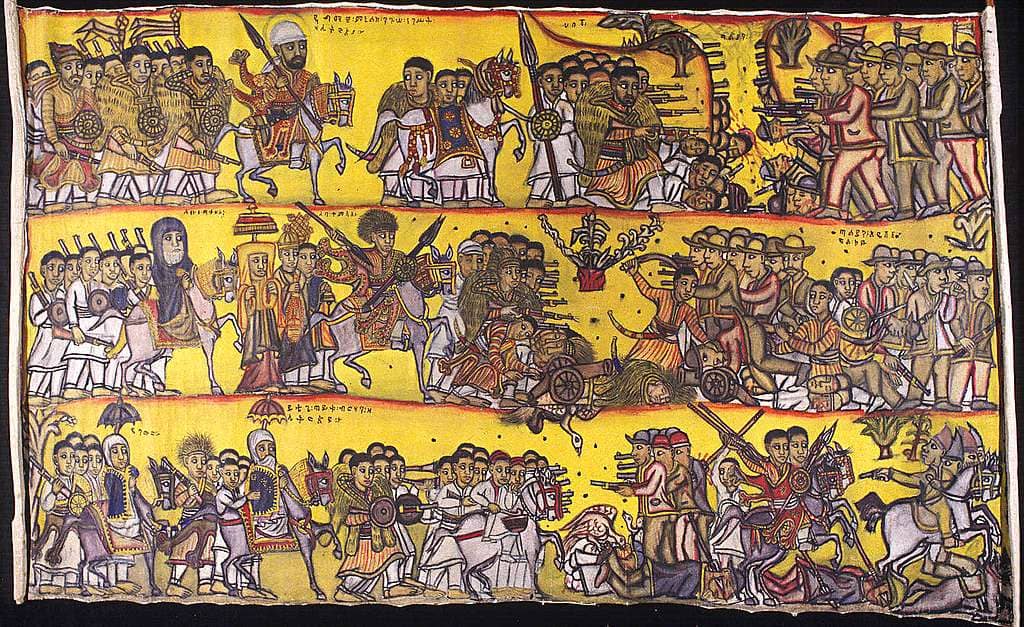
Visiting Adwa
For those interested in exploring Ethiopian history and culture, visiting Adwa offers a unique opportunity. The town of Adwa, located in north-central Ethiopia, is both a historical site and a symbol of national pride. Visitors can explore the battlefields where Ethiopian forces, led by Menelik II, achieved their historic victory over the Italians.
Adwa is accessible from Addis Ababa, the capital city of Ethiopia. The journey to Adwa provides a chance to experience the country’s diverse landscapes and vibrant culture. In Adwa, guided tours are available to help visitors understand the significance of the battle and the strategies employed by the Ethiopian forces.
The town also features monuments and museums dedicated to the Battle of Adwa, offering deeper insights into this pivotal event in Ethiopian and African history. Visiting Adwa allows travelers to connect with Ethiopia’s rich heritage and appreciate the enduring legacy of this historic victory.
Conclusion
The Battle of Adwa stands as a monumental event in Ethiopian and African history. It marked a significant victory against colonialism and remains a symbol of unity and resistance. The legacy of the battle continues to inspire and educate, reminding us of the importance of courage and determination. Visiting Adwa provides a meaningful connection to this rich history, offering insights into the resilience and pride of the Ethiopian people.
Frequently asked questions
-
When did the Battle of Adwa end?
The Battle of Adwa ended on March 2, 1896.
-
Who started the Battle of Adwa?
The Battle of Adwa was initiated by the Italian forces under General Oreste Baratieri, aiming to expand Italian colonial territory into Ethiopia.
-
Who fought in the Battle of Adwa?
The Battle of Adwa was fought between the Ethiopian forces led by Emperor Menelik II and Empress Taytu Betul, and the Italian forces commanded by General Oreste Baratieri.
-
Why did the Battle of Adwa happen?
The Battle of Adwa happened due to Italy's attempt to expand its colonial empire into Ethiopia, which led to a confrontation over the interpretation of the Treaty of Wuchale. Italy claimed sovereignty over Ethiopia, while Ethiopia maintained its independence.
-
Why was the Battle of Adwa important?
The Battle of Adwa was important because it was a significant victory for Ethiopia, ensuring its independence and preventing colonization by a European power. This victory also became a symbol of anti-colonial resistance and inspired other African nations in their struggles for independence.
-
Why was the Battle of Adwa fought?
The Battle of Adwa was fought primarily due to the conflicting interests and interpretations of the Treaty of Wuchale between Italy and Ethiopia. Italy's ambition to expand its colonial rule into Ethiopia and Ethiopia's determination to maintain its sovereignty led to the confrontation.
Subscribe To Get The Latest Update
About Author
Meet Hanan Akmel, our SAAS SEO Specialist with a rich experience of 5 years in enhancing online presence for diverse clients. With a passion for digital landscapes and a keen eye for search engine trends, Hanan excels in crafting strategies that significantly boost search engine rankings and user engagement. Her expertise lies in seamlessly integrating technical SEO with content-driven approaches, ensuring a holistic growth for her clients’ digital footprint.


